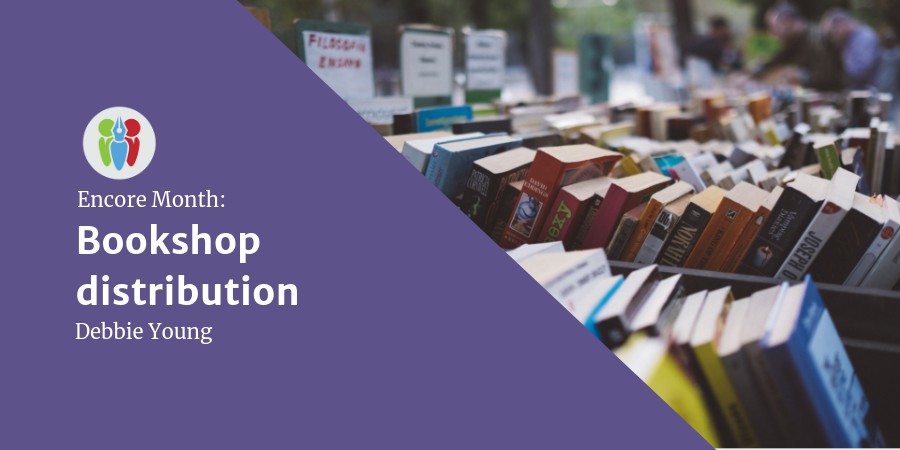
Ebook available as free download to ALLi members, and for non-members to buy from all the usual retail channels
The more you understand about how booksellers and bricks-and-mortar bookstores operate, the more likely you are to find success in placing your self-published books with them. In today's encore post, Debbie Young shows you an extract from the ALLi guidebook, How to Get Your Self-published Book into Bookstores by Debbie Young, which will help you view the bookstore through the eyes of the bookseller and understand how to get bookshop distribution.
The Bookseller's Objectives
Whereas the author's objective is to get books stocked in a local bookstore for reasons of their own, such as validation or ambition, the bookseller's objective is far more practical: to run a successful bookstore. Your book is a tiny piece in the jigsaw of the business, and it may not fit at all.
What makes a successful bookstore?
- attractive premises, well maintained, in a good position
- a carefully curated mix of the right books to appeal to the local clientele
- effective stock management to ensure the most profitable use of shelf space
- efficient service to customers by motivated, happy and well-informed staff
- strong administration and financial management skills
What threatens a bookstore's success?

Debbie Young also writes about bookshops in her Sophie Sayers Village Mystery novels (Drawing by ALLi author and illustrator Thomas Shepherd at shepline.com)
- books that won't appeal to its customer base (staff will have a very clear idea of its customers' likes and dislikes)
- books that don't sell but clutter up shelves that might earn more money with different stock
- books that are substandard, e.g. full of errors or which fall apart, damaging customer goodwill and potentially driving them to shop elsewhere
- people who disrespect or waste staff time, preventing them from dealing with customers waiting to be served
- unprofitable deals, e.g. profit margins that do not cover the cost of sale
To agree to stock a book, the bookseller must believe that it is:
- produced to professional standards, in terms of writing and production values
- a good match for the clientele
- offering a realistic profit margin, i.e. discount against its selling price
- easy to source, ideally via the normal distributor, with new stock fast to arrive

Could you make the case for your book to be kept in a bookstore's balloon debate? (Image by NeONBRAND via Unsplash.com
When you pitch your book to a bookseller, those are the considerations that will be top of their mind. Even if you are a longstanding customer, know the staff well, and buy books there all the time, if your book doesn't meet those last criteria, you're unlikely to get a good reception.
If you're lucky, the bookseller will let you down gently, say encouraging things about your book, and encourage you to keep writing.
If you're not so lucky, and especially if you're a stranger to the shop, you may get less sympathetic treatment, especially if there is a queue of customers behind you, waiting to pay for their purchases.
But take heart, because trade-published books have to run the same gauntlet as you. You are all making a bid for a place on the shelf alongside other players in the industry, as if your books are participants in a vast balloon debate. It's down to you to make the case for your books not to be jettisoned.
How #indieauthors will benefit from understanding the bricks-and-mortar bookstore's objectives - by @DebbieYoungBN, author of ALLi's bookstores guidebook #authors4bookstores Share on XSOME ENCOURAGING CASE STUDIES OF INDIE AUTHORS GETTING THEIR BOOKS INTO BOOKSTORES
From the ALLi Author Advice Center Archive




